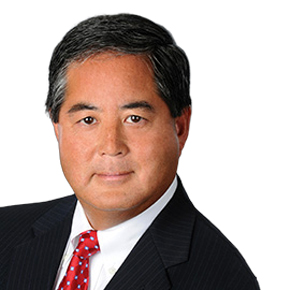
US Hybrid Mismatch Regulations
The US hybrid mismatch regulations move multinational tax planning closer to a one-world approach to limit Base Erosion and Profit-Shifting (BEPS). With the changes enacted as part of the US Tax Cuts and Jobs Act of 2017 (TCJA), many of the long-used planning structures and techniques employed by US international tax advisors were severely curtailed, if not eliminated completely. This has consequences for businesses.
The assault on structures viewed as supporting base erosion and profit-shifting has continued with final and proposed regulations released by the Internal Revenue Service aimed at clarifying TCJA tax provisions that targeted hybrid mismatch arrangements. Under such arrangements, companies could exploit differences between two countries’ rules to avoid taxes (T.D. 9896, effective 8 April 2020). These multinational group structures seek to take advantage of differences in US and foreign tax law that classify a transaction or entity differently for tax purposes. One example of such different treatment is where a US company has made a “check-the-box” election to treat an eligible foreign legal entity as transparent or “disregarded” for US tax purposes. The new regulations also address dual consolidated losses and entity classifications that target taxpayers’ ability to claim the same deduction under US and foreign tax laws and taxpayers that pay or receive hybrid dividends.
Rules preventing hybrid mismatch arrangements were part of the OECD’s BEPS project. With the EU’s second Anti-Tax Avoidance Directive (ATAD-2), the tax effects of hybrid mismatch structures, including the deductibility of payments involving hybrid companies, were limited. The international response to the BEPS concerns with hybrid arrangements preceded the US tax law and regulatory changes, placing both US tax advisors and the legislative/regulatory process in a catch-up mode, explain the consultants from Marcum LLP.
Many of the long-used planning structures and techniques employed by US international tax advisors were severely curtailed, if not eliminated completely by the US Tax Cuts & Jobs Act of 2017.Douglas Nakajima, International Tax Co-Leader, Marcum LLP, Philadelphia, USA
TCJA added two provisions affecting treatment of hybrid arrangements:
- Section 245A allowed a participation exemption of 100% of a dividend received from a foreign corporation by a US shareholder that is a domestic corporation. However, Section 245A(e) disallowed the new Dividends Received Deduction for any dividend received by a US shareholder from a controlled foreign corporation (CFC) for amounts qualifying for deduction under new Section 245A(a) and for which the CFC received a deduction or other tax benefit in a foreign country; hybrid dividends between CFCs with a common US shareholder are currently subject to tax as subpart F income.
- Section 267A denies certain interest or royalty deductions involving hybrid transactions or hybrid entities where there is a hybrid mismatch for any disqualified related party amounts, including interest or royalties paid or accrued to a related party, where the related party does not include the income or is allowed a deduction in the foreign tax jurisdiction.
These provisions seek to neutralise the potential double non-taxation produced by hybrid dividends or deductible payments made by or to a hybrid entity. The new final and proposed regulations provide detailed guidance on their implementation and their implications to taxpayers with or planning to structure hybrid arrangements. Despite differences in their specifics, multinational taxpayers’ ready access to benefits previously available from hybrid structures has been severely limited and their tax advisors’ role has, yet again, become more challenging, say the Marcum experts.
For further information please contact:
Douglas Nakajima, International Tax Co-Leader, Marcum LLP, Philadelphia, USA
Email: douglas.nakajima@marcumllp.com


